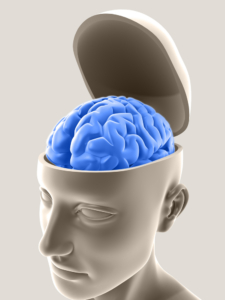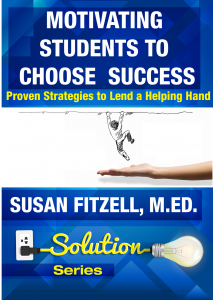The brain learns and grows through interactions with its environment. We know, because of scientific research, that mental stimulation improves brain function and actually protects against cognitive decline. Physical exercise and stimulation are just as critical as mental stimulation. Given the trend of reduced recess time and physical education requirements, we should rethink how we spend class time and introduce research proven activities that expand brain function.
Here are twelve ways to encourage brain “growth”:
1. Provide tasks that help develop agility and hand-brain coordination such as chess, Tai chi, Brain Gym, Bal- A-Vis-X, and working with modeling clay or play-dough.
A-Vis-X, and working with modeling clay or play-dough.
2. Engage students in neurobic exercises such as eating or writing with the opposite hand, attempting to communicate without talking, finger-write words on the desk with their eyes closed and activities that combine two senses (listening to music while painting, or doing class work).
3. Create review materials in the form of crossword puzzles. Crosswords improve nuances of language. They exercise the brain cells involved in word retrieval, vocabulary, comprehension, and conduction.
4. Improve students’ spatial relationship ability by having them draw face vases. On the left, draw a face then copy it on the right trying to make it as identical as possible in the opposite direction.
5. Tongue twisters increase the activity of brain cells in Broca’s area, which controls the articulation of speech. Create tongue twisters for review material, or just engage students in age-old tongue twisters to stimulate brain activity.
6. Visual working memory is highly correlated to intelligence: People with a bigger VWM tend to score better on cognitive challenges. Have students practice multiple ways of visually encoding and retrieving information.
7. Associate concepts with visual images. Include diagrams, tables, outlines, etc. when presenting and practicing for information recall.
8. Take advantage of pictures, cartoons, charts, graphs, or any other visual material. Have students draw many of these things themselves.
9. Have students try to visualize how various ideas relate to each other and draw a graph, chart, picture, or some other representation of the material.
10. Teach students to habitually convert difficult material into pictures or diagrams in student notes, or to convert words into mental images on the blackboard of their mind.
11. Have students identify how things are similar or different, then develop graphic representations of similarities and differences in the concept, unit, fact set, language, landscape, etc.
12. Teach note-taking strategies like clustering, webbing, and mind mapping to enhance the brain’s ability to process what to keep, delete, or alter.
Resources
Copyright © 2010, Susan Fitzell & Aim Hi Educational Programs, LLC. First published July 2, 2010.
#####
Susan Fitzell, M. Ed, CSP, is a nationally recognized presenter, author of nine books for teachers, trainers, and parents, an educational consultant, and CEO of Aim Hi Educational Programs, LLC. As an independent consultant and coach, Susan offers the personalization, continuity, and consistency necessary for true change in any organization. She works side by side with teachers, school administrators, and business leaders as a coach and trainer, employing Brain Power strategies that take learning to the next level.
Disclosures and Permission to Reprint
 | Bring Susan to your campus!How Can School & Home Develop Motivation and Success for Youth?Give your students the priceless gifts of empowerment, accountability, and motivation to tackle any learning challenge. Learn practical strategies today and implement them in your curriculum tomorrow. Bring Susan to your campus!Featured seminar – How Can School & Home Develop Motivation and Success for Youth? |
About Susan Gingras Fitzell M.Ed., CSP
A dynamic, nationally recognized presenter, author of nine books for teachers, trainers, and parents, an educational consultant, and CEO of AimHi Educational Programs, LLC. She launched the firm in 1993 after a successful career teaching students with special needs at the high school level. Today, Susan works side by side with teachers, school administrators, and business leaders as a coach and trainer.